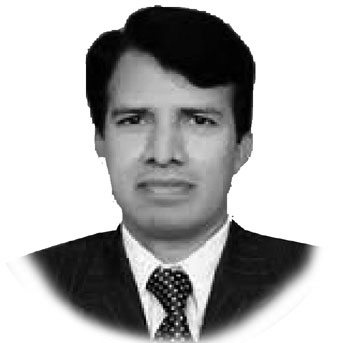Modi’s confession of disintegration of Pakistan
INDIAN Prime Minister Narendra Modi openly confessed the role played by India in the disintegration of Pakistan in 1971.
On 26 March 2021, Modi visited Bangladesh in connection with 50th anniversary of independence of Bangladesh.
The confessed in his speech, “He too had been imprisoned for participating in a ‘Satyagraha’ in India for the liberation of Bangladesh.” He indeed, fought against Pakistani defence forces alongside the Mukti Bahini (MB).
Indeed, being a militant member of the Rashtriya Swayamsevak Sangh (RSS) he participated in the insurgency against Pakistan along with Indian Army and MB.
The people of Bangladesh protested against the presence of Mr Modi in Bangladesh and carried wide-spread demonstrations all over the country.
As per Government of Bangladesh over a dozen people died during these demonstrations, however, independent sources quoted over 100 people were killed by police and Bangladeshi Army during the protests.
Thousands of the people were wounded during these protests in a week’s time. As per BBC “The protesters were not against India or the people of India.
They were angry at the invitation to Mr Modi, who’s extremely controversial and who’s known for his anti-Muslim stance.”
The truth is people of Bangladesh have understood Indian role and massacre of their forefathers in 1971 at the hands of India; Indian Army, RSS and MB.
BBC concludes, “The anger over Mr Modi’s visit is, therefore, a clear warning to Delhi if the sensitivities of its neighbour are not addressed, India may end up being friends only with the government in Dhaka and not with the people of Bangladesh.”
While reviewing the history, it is worth mentioning that, in order to disintegrate Pakistan, India created Mukti Bahini much earlier than 1971 in areas all along the borders of (former) East Pakistan.
This terrorist organization along with RSS militants committed unprecedented and worst crimes against humanity and a systemic genocide of the innocent civilians which also included the Bengalis as well as the West Pakistani population.
The organization of this terrorist force was known to many countries at the global level.
The Deputy High Commissioner of Australia in India was informed by MB in early 1971 that this organization had a strong force and solid Indian backing for operating against the Pakistani forces deployed in the then East Pakistan (now Bangladesh).
The sole aim of approaching the Australian Deputy High Commission by the political wing of MB was to gain support of international community for an independent Bangladesh.
Indeed, all this recruitment of the militant Mukti Bahini was done by India which included RSS militants while their command was in the hand of Indian RAW.
Whereas the Indian Army’s Training and Recruitment centres trained the lower cadres (junior level soldiers), the Indian Military Academy, Dehradun, trained the officer cadre to lead the militant activities of the MB in East Pakistan.
While India was organizing the activities of MB, the Indian regular Army troops, its BSF and RSS physically entered the Pakistani territory (East Pakistan) in the garb of MB and fought against Pakistani forces, deployed on the Pak-India border in the eastern sector.
Many of the Indian regular soldiers were killed and captured by Pak Army and even brought before media.
Who killed whom in the former East Pakistan is yet another angle of the disintegration of Pakistan in 1971.
Even some of the Indian and Bangladeshi writers have revealed the truth about the mass massacre in former East Pakistan.
In his article entitled, ‘When the India-sponsored Mukti Bahini slaughtered 1 million Biharis’ Mr Muhammad Abul Kalam, a Bangladeshi patriot writes, “Actually Mukti Bahini and Bengal Regiment personnel raped the Bihari and West Pakistani women killed about 800,000/ to 1,000,000/ innocent Biharis and West Pakistanis in East Pakistan in 1971.”
As per historical records, Mr Mohammad Azizur Rahman, Advocate S/O Late Akimuddin, resident of Mohammadpur Union Council No II, PS Tahakurgaon, Dinajpur organized killing, looting, burning of houses of innocent people in which village Thakurgoan 3000 people were killed, young girls abducted and raped and those pregnant bayoneted, still born babies torn to pieces, corpses dragged naked along the streets.
He also instigated the absconders of East Pakistan Rifles to rebel and kill all of the West Pakistani Officers and men.
After disintegration of Pakistan and formation of Bangladesh, this mass massacre was shown to international media as the “Bengali dead bodies and graves”.
This massacre of Biharis and West Pakistanis buried in mass graves are still being misquoted by Bangladesh to defame Pakistan and Pak Army in contravention to the reality.
Not only Biharis and West Pakistanis but, the armed squads of MB and Indian forces men killed thousands of local people and put the blame on Pakistan Army.
This all was done to create an element of hate against the Pakistani forces and the State.
This well orchestrated and articulated Indian strategy worked well and MB and Indian spying network was able to create unrest among the local populace.
After confessional statements of Indian Prime Minister Mr Modi, it is incumbent upon the United Nations Human Rights Council to take action against those Indian soldiers, RSS people and particularly Prime Minister Modi who undertook massacre of Pakistanis in 1971.
The protests carried out by the people of Bangladesh is an indication that India has no place in Bangladesh and the incumbent Government must stop sponsoring Indian role in Bangladesh.
Alongside MB, the RSS and Indian Army has worst track record of killing the people of Pakistan and raping the women folk.
The world must take notice of Modi’s confession of disintegrating Pakistan by supporting the MB and perpetrating worst human rights violations in former East Pakistan in 1971.
There is a need to stop the current human rights violations of being done through political and judicial murdering of the Pakistani loyalists by Awami League Government under Hasina Wajid.
— The writer is Professor of Politics and IR at International Islamic University, Islamabad.









